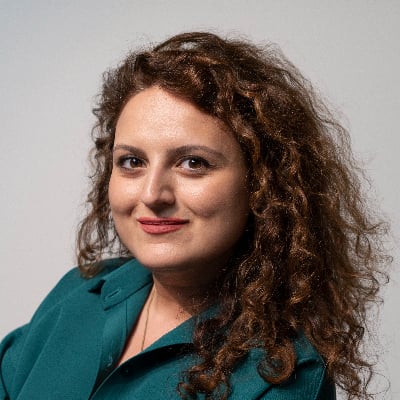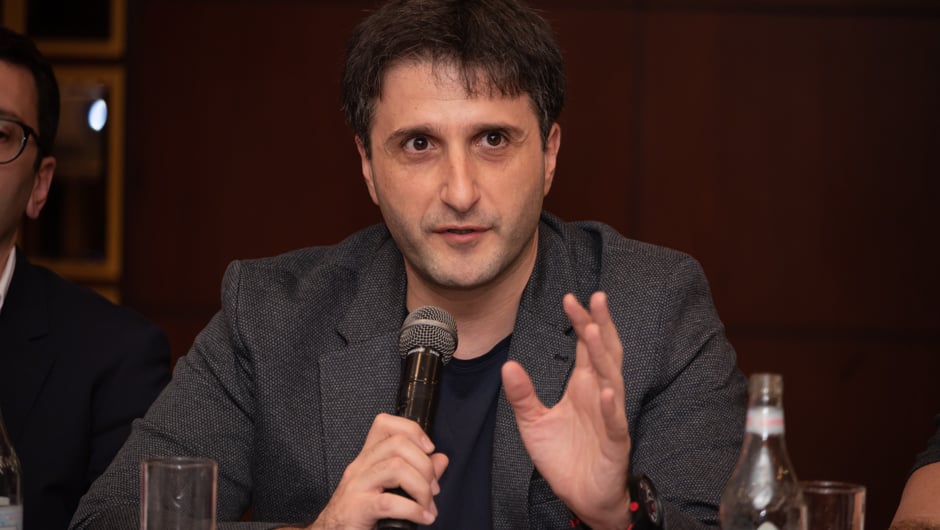Following the recent attack by Azerbaijan against Artsakh, the already tense relations between Armenia and Russia have escalated. The top political leaders of both countries have been accusing each other, and these accusations are reflected in their respective media. Both sides are using various platforms to express themselves and defend their positions. Recently, there has been an increase in anti-Armenian propaganda in the Russian press and on TV stations during popular talk shows. Similarly, although on a smaller scale, some Armenian media outlets have also been observed to engage in such propaganda. To better understand this phenomenon in the media of both countries, we spoke with Ara Tadevosyan, the director of the Mediamax news agency.
Mr. Tadevosyan, the Armenian and Russian media have recently entered a new phase of mutual intolerance. Previous negative sentiments have multiplied; can this be called an information war?
Although it could be considered an information war, I would refrain from making such a claim.
The root cause of anti-Armenian sentiments in the Russian media stems from the country’s leadership. What we read, hear, and see in the Russian press is reflective of the top state structures.
The media presents and rewrites the news. However, we should also consider that in Russia today, almost all media outlets are controlled to some extent by the authorities, and there appears to be no independent media left. Therefore, it is unsurprising that they reflect the official Moscow point of view.
There is evidence of a targeted campaign against Armenia on social media platforms in Russia. Many Russian users, including media personalities, have posted negative and sometimes hateful content. Some even attempted to interfere with the internal political developments of Armenia. What is your interpretation of this phenomenon?
Yes, there were similar cases. It is not uncommon for media personalities and political analysts in Russia with a large following to align with their government’s agenda. This practice is not limited to Armenia and has existed for some time. Individuals disseminate their government’s views on social media, some discreetly and others more openly. While this is unacceptable behavior, it does not come as a surprise to me.
How does the Armenian media respond to this phenomenon?
A similar phenomenon is also noticeable in our country, where anti-Russian propaganda is carried out by some Armenian media, albeit not to the same extent considering both the size of our country and the available opportunities.
We observe that media outlets that are directly or indirectly linked with the authorities, in turn, spread anti-Russian sentiments; this creates an impression that the media of these two nations are in conflict, but I would avoid using the term “war” to describe it.
Why do political disagreements spill over into the media and influence the media’s agenda?
It is undeniable that both Armenia and Russia have media outlets that solely serve political interests. These media outlets focus exclusively on catering to political objectives, whether domestic or foreign policy. Their stance on any matter is always derived from the political interests they aim to serve.
Naturally, this is very painful. It is wrong for the media to serve any political agenda, but this phenomenon is almost inevitable in both countries today.
You also mentioned that some Armenian media sometimes generate and spread anti-Russian sentiments. Doesn’t this create new risks in bringing the over-strained relations between Armenia and Russia to an even more impasse?
I can’t answer that question. That question should be answered by the mass media that carry out that counter-propaganda.
I can only say that at Mediamax.am, we strive to offer unbiased information to our readers. We consistently feature the perspectives of both Russian and Western experts without any editorial bias. Our readers have the right to access all sides of the story and form their own informed opinions.
What would we find if we analyze the Armenian media field through the lens of anti-Russian propaganda? Is the media content unbiased and balanced, or is the opposite true?
Unfortunately, only a handful of media sources are truly independent and unbiased, providing a platform for both pro-Russian and pro-Western viewpoints.
The press should refrain from passing judgments and instead present opinions in columns. Both sides should have equal representation.
Or suppose the media, for example, conducts an interview with an expert with a conditional pro-Russian orientation. In that case, it should not simply rewrite and spread his thesis but try to understand how realistic, favorable, or dangerous they are.
In other words, the mass media should never be used as a propaganda tool, regardless of the direction in which the propaganda is disseminated.
Interview: Marianna Danielyan







